Sustainability initiative engages campus community and region
New leadership team brings experience, passion to elevate OU’s ambition to become model ‘sustainable university’
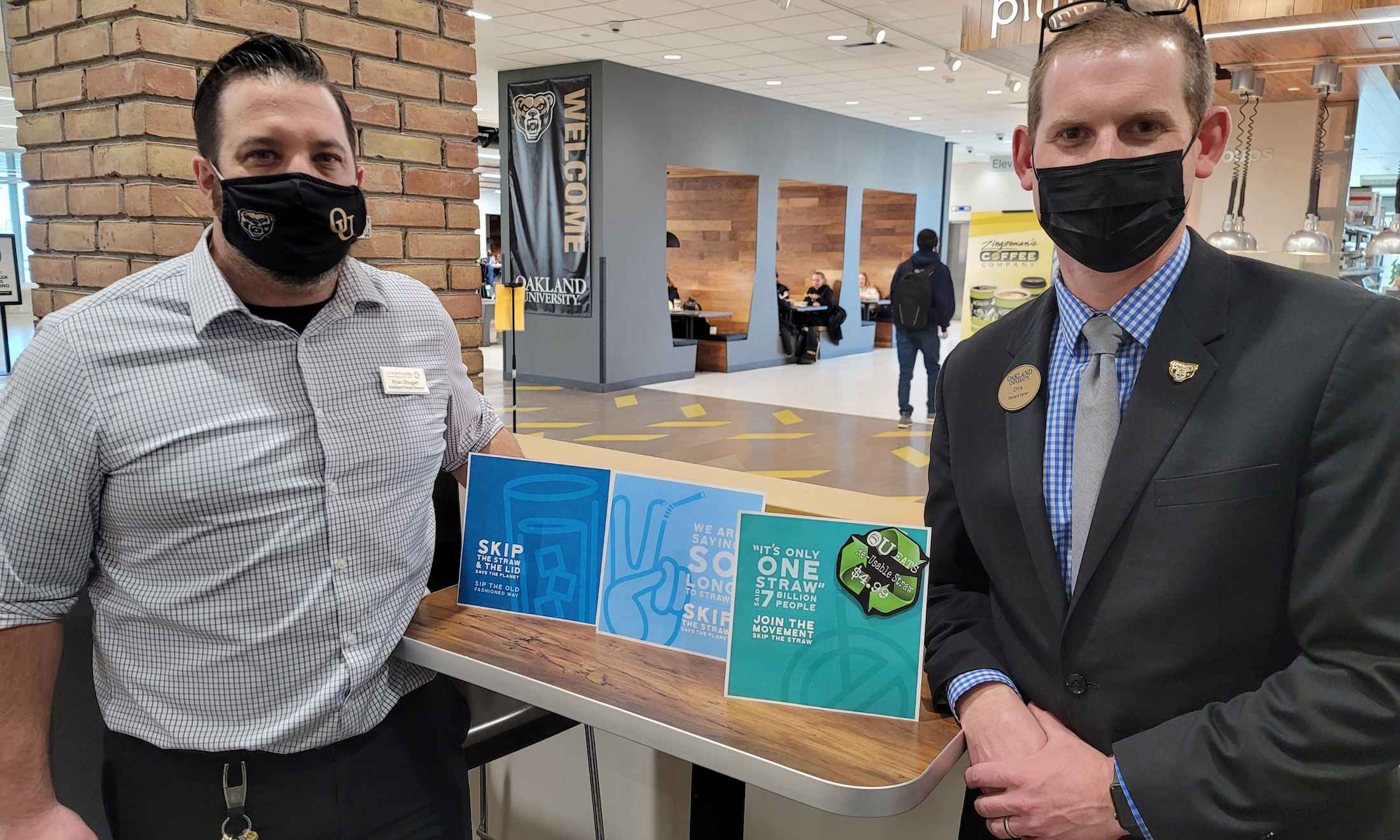
Ryan Shugart, assistant retail director at OU food service provider Chartwells, and Chris Reed, director of the Oakland Center and member of the Sustainability leadership team, are collaborating to reduce waste in the food service offerings on campus.
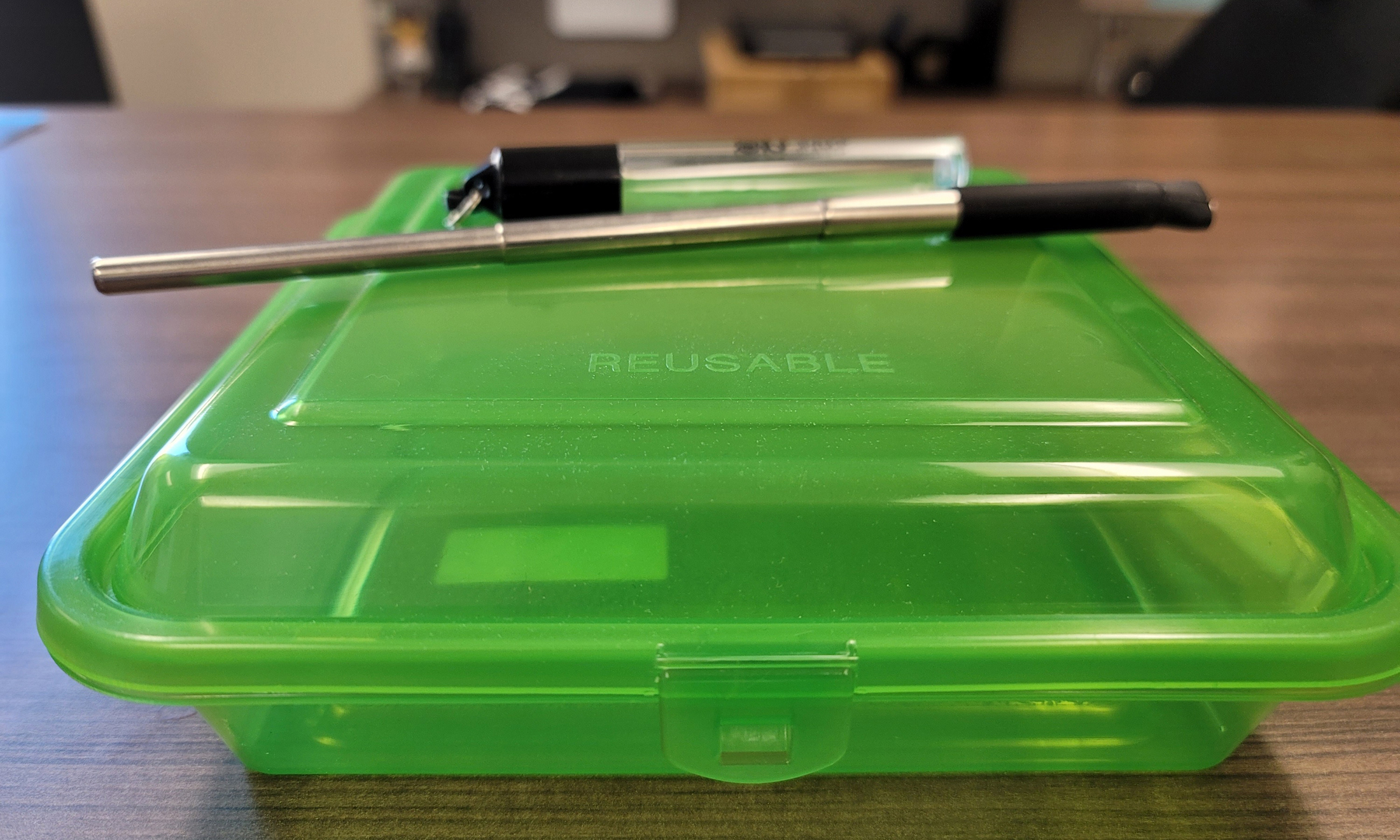
The Sustainability team is helping students transition to reusable "to go" containers and reusable straws that can be washed and reused, a move that is significantly lowering our rate of disposable products filling garbage bins and landfills.
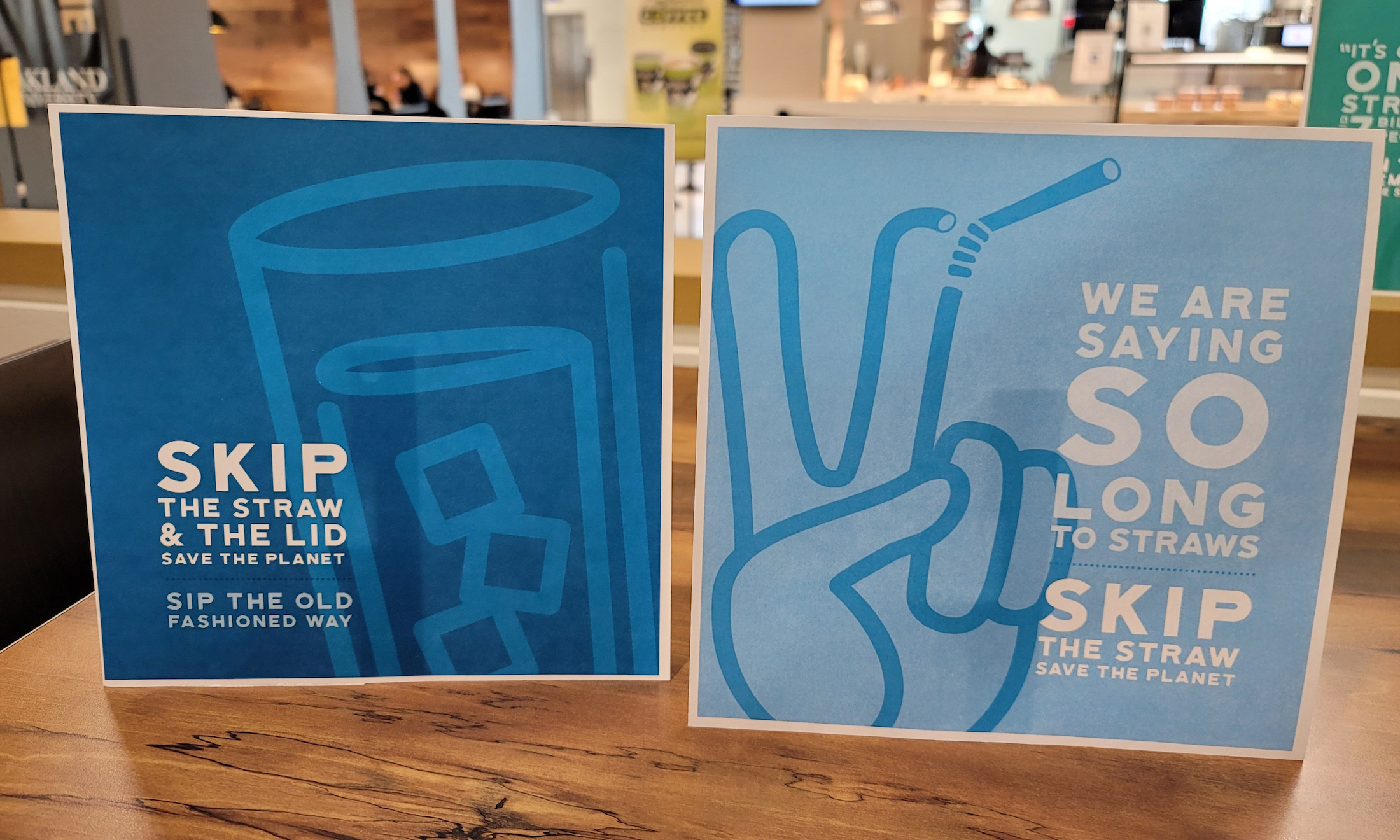
The OU Sustainability team and Chartwells have also been engaging the campus community with an informational campaign of how each one of us can make a difference.
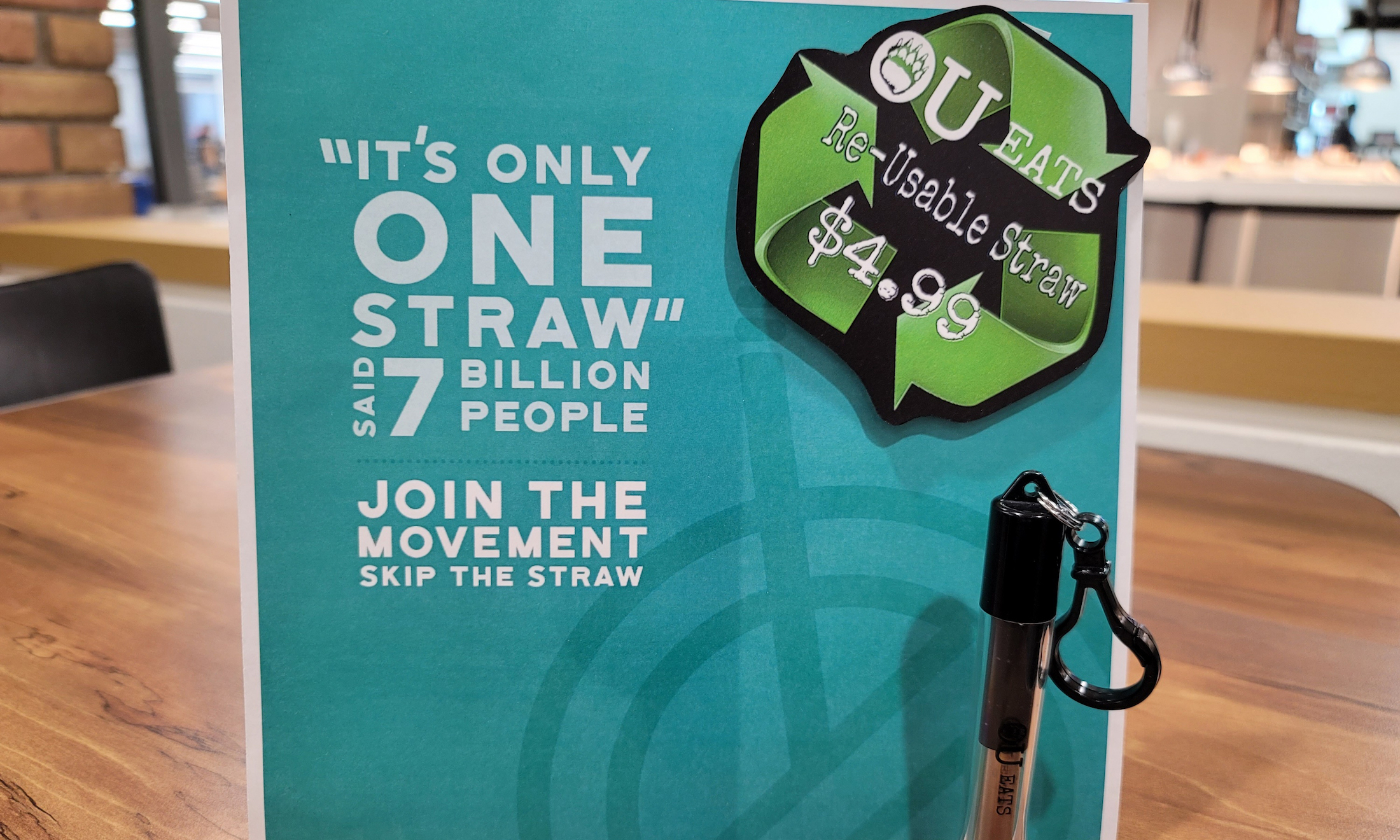
This message about straw use really makes you think about the bigger picture. If everyone used a new straw every day, it would create significant waste.
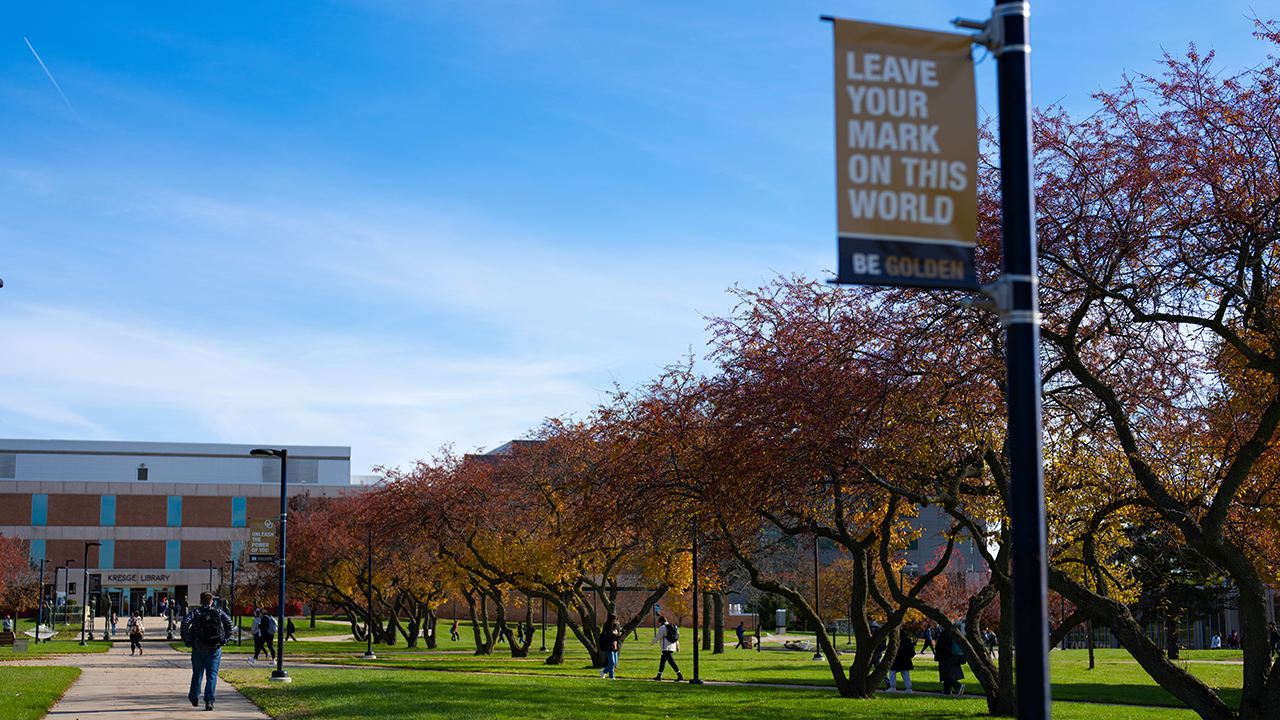
As the pandemic begins to wane, Oakland University President Ora Hirsch Pescovitz is stepping up efforts to roll out a campus-wide sustainability initiative that builds on a comprehensive assessment of current sustainability practices.
The president has appointed Chris Kobus, Mozhgon Rajaee and Christopher Reed to oversee the ongoing development of the university’s sustainability plan. The three were instrumental in the evaluation phase of the plan, and now will lead the effort to integrate the various parts of the initiative, including the development of sustainability proposals in academics, research, environmental (renewable energy, biodiversity), food and dining, public engagement, transportation, and well-being.
“Our leadership team has the experience and passion to inspire our community to become a vital part in transforming Oakland into a leading sustainable university,” said President Pescovitz.
“Since my arrival at Oakland University, sustainability has been one of my highest priorities and there are few other issues with the potential to impact Michigan, the region and our planet,” she said. “It is something that is of utmost importance to our student body, our faculty and our staff.”
Read related story about Oakland University's new partnership with Oakland County
Over the past year, the initial phase of the plan included input from more than 50 faculty and staff. The next phase will build on the engagement with students, particularly student groups working to raise awareness of sustainability in areas such as global warming, recycling and environmental justice.
The sustainability plan is part of Reimagining OU, a presidential initiative led by former Dean Kevin Corcoran, Dean Graeme Harper and Dean Louay Chamra that aims to engage and inspire faculty, students and staff to rethink the possibilities and priorities of the university.
Since the onset of the pandemic in March 2020, the focus of Reimagining OU has been primarily on improving administrative efficiency, and laying the groundwork for further discussion about improvements to university culture, traditions and building on community engagement initiatives.
With the expected return to a more normal campus environment, Reimagining OU will be more visible on campus, including in-person meetings to seek broader campus input.
The new sustainability leadership team brings a range of experience that will elevate the priority of OU becoming a sustainable campus:
- Chris Kobus, associate professor of engineering, has notable expertise in renewable, clean and alternative energy, and has worked with the operations unit and DTE to make the university more energy efficient. He has been in the forefront of the School of Engineering’s sustainability initiatives and is an outspoken advocate for a broader university approach to integrating sustainable practices.
“One of my teaching and research areas is in energy efficiency in maintaining our standard of living, but minimizing the environmental footprint necessary to do so. The biggest challenge to humanity has historically been survival, but now is sustainability and that affects everything and everyone.”
- Mozhgon Rajaee, assistant professor in the School of Health Sciences, is a commissioner on the city of Ferndale’s Environmental Sustainability Commission and a board member of the Michigan Environmental Council and the Great Lakes Environmental Law Center. Her work focuses on sustainable transportation, environmental exposures and environmental justice.
“Just as we reacted with urgency to the pandemic, addressing climate change, biodiversity loss, and environmental pollution requires swift collaboration and creative solutions. I’m excited to engage our community in local sustainability work, such as planting native species in our gardens and expanding transit options to campus.”
- Christopher Reed, director of the Oakland Center, has a broad range of experience in developing and implementing sustainability plans at universities, including previously at Vanderbilt University. He has pushed for sustainable dining practices, including revamping the university’s waste disposal practices.
“Sustainability has been a driving force throughout my career. Oakland University has the potential to incorporate innovative programs and practices that impact our campus and surrounding community in a meaningful way. This is an exciting time for the university, and an opportunity for all of Oakland University to be active in improving the world we live in today and in the future.”
The leadership team will be supported by committees in the eight areas of the plan, and an advisory board that includes Louay Chamra, dean of the School of Engineering and Computer Science; Steve Waterfield, director of Athletics; John Young, vice president of Communications; and Frank Provenzano, director of Presidential Initiatives.
Next steps include reconvening committees in the eight sustainability focus areas, and submitting short-, medium-, and long-term sustainability proposals in the late fall.

